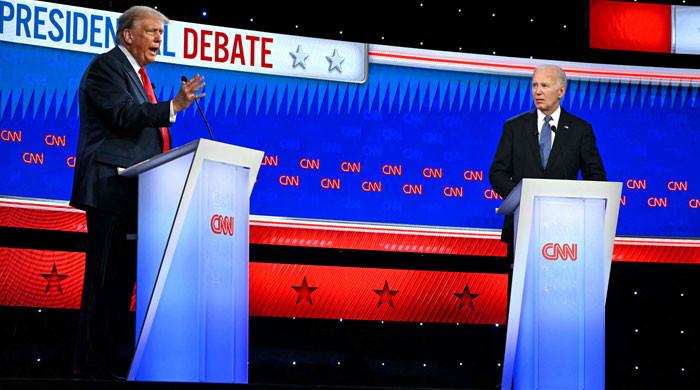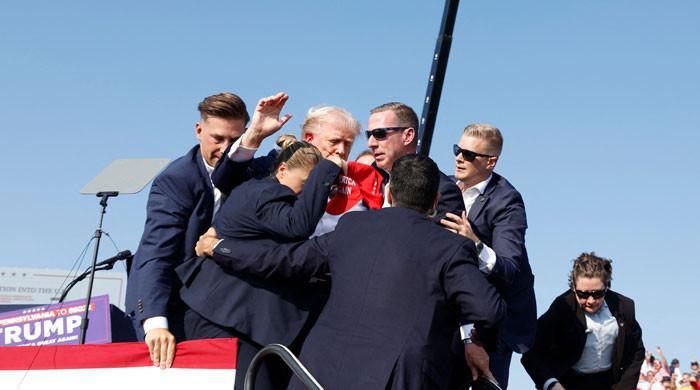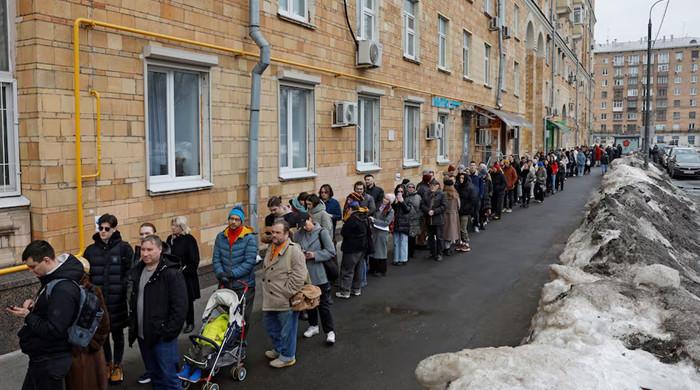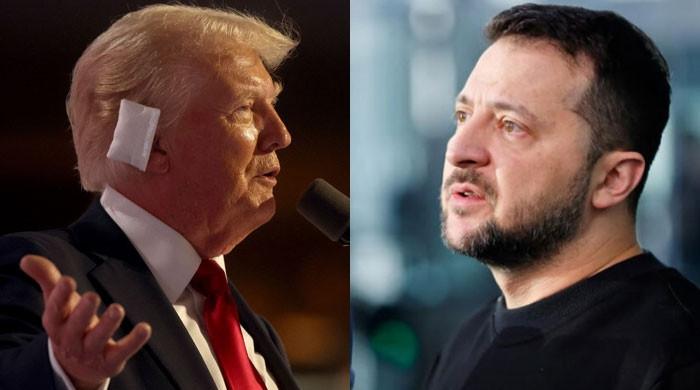The European far right is on the march.
Nationalist-populist political parties are expected to make significant gains in continental parliamentary elections that begin on Thursday, consolidating a shift to the political right that has been decades in the making.
Far-right parties will not win outright, polls indicate. But analysts say victory is not necessary to make a dent in broad political issues such as climate change, the war in Ukraine and immigration.
“The far right will not become the largest group in the European Parliament, but it will grow in strength,” said Matthijs Rooduijn, a political scientist at the University of Amsterdam. “Not only when they are in power do they influence and affect the ideas of the main political parties.”
At stake are 720 seats in the European Parliament, the only directly elected body of the European Union that represents all member states. As a “colegislature,” it has limited powers, but exercises more authority on certain regulatory issues.
Polls predict high turnout as analysts point to a growing belief among the electorate that Parliament's actions can affect their daily lives.
Some 200 million voters spread across the 27-nation bloc are eligible to take part in the election that begins Thursday in the Netherlands and will continue over the weekend, when most voting will take place.
Anti-Islam Dutch lawmaker Geert Wilders of the Freedom Party smiles as he poses for a photo during a European election campaign event at a market in The Hague on Wednesday.
(Peter Dejong / Associated Press)
The result should largely be known by Sunday evening, after the polls close in all participating countries, but it will take some time for the full implications to become clear. This is because national political parties that gain representation in Parliament organize themselves into transnational groupings based on broad political affinity.
Fringe Ideas Go Common
When it comes to far-right incursions into European politics, analysts sometimes invoke the French phrase cordon sanitairewhich originally referred to the boundaries of a quarantine zone during an infectious disease outbreak.
The term has been repurposed to describe the political barriers that are crossed as Europe's traditional centrist parties cooperate with factions whose views they once considered extreme (for example, on immigration).
“This has been the biggest success of the far right: some of their ideas that were considered unacceptable are things that voters have already heard about and are no longer surprised,” said Marta Lorimer, a European politics researcher at the London School. of Economy.
This leads to scenarios such as that of Ursula von der Leyen, the head of the powerful European Commission, who has been reflecting in recent days on a possible coalition alliance between her party, now the largest in the legislature, and that of the prime minister. far-right Italian, Giorgia Meloni, who came to power in her home country through a political movement with neo-fascist roots.
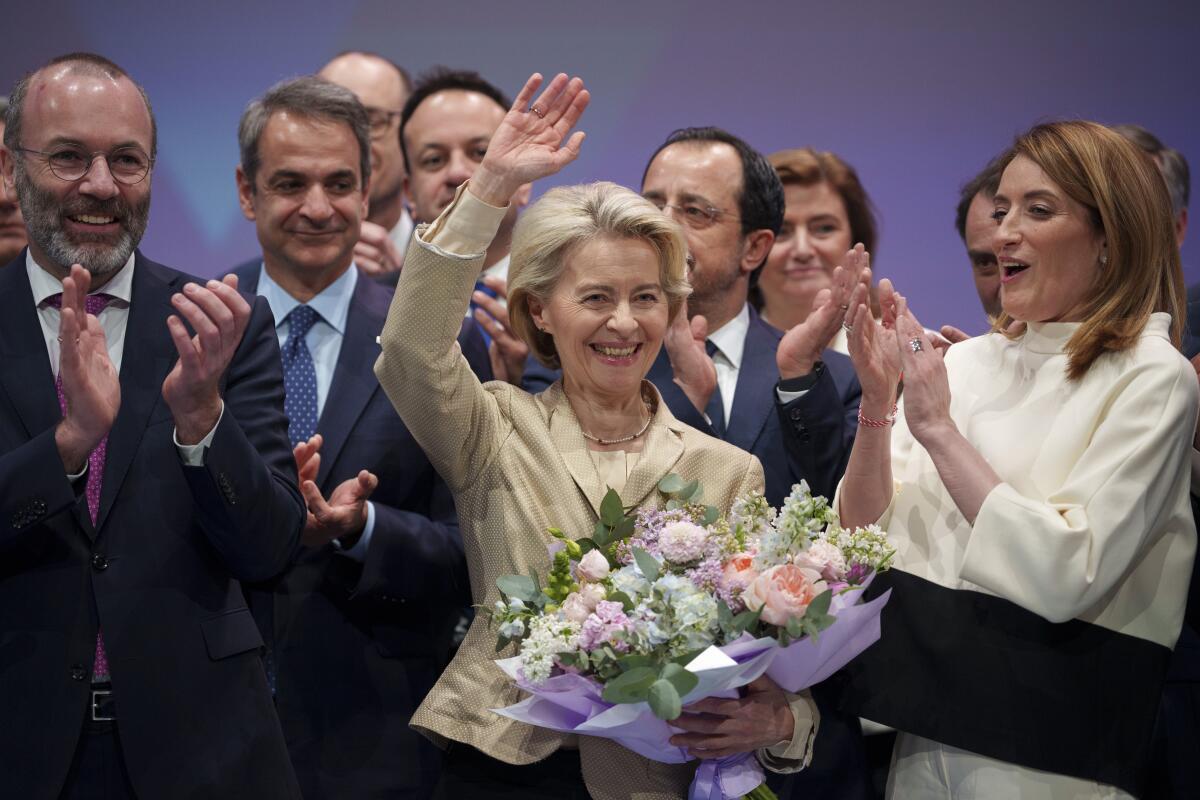
The president of the European Commission, Ursula von der Leyen (center), has reflected on a possible alliance between her European People's Party and the party of the far-right Italian prime minister, Giorgia Meloni.
(Andreea Alexandru / Associated Press)
Von der Leyen needs a strong performance from her centre-right European People's Party, and a demonstrated ability to court coalition partners, to propel her to a second term at the helm of the EU executive body.
In the face of this vote, far-right parties have become experts in uniting hardline positions, such as skepticism about climate change or harsh denunciation of immigrants, with popular or acceptable causes. In Belgium, the Flemish Interest party, or Vlaams Belang, is stridently anti-immigrant, but is also positioned to attract some support due to its separatist stance. Another staple of the far right is fierce anti-establishment rhetoric, which can tap into voters' anger over inflation or high housing costs.
Infighting among the far right
But the far right is far from monolithic, which has also become clear as parties that once seemed like natural allies have struggled to distance themselves from one another.
The once resurgent Alternative for Germany, or AfD, was expelled last month from the far-right Identity and Democracy group in the European Parliament after one of its leaders suggested that not everyone who served in the Waffen-SS, the Nazi group of the Second World War paramilitary force, should be seen as a war criminal. Other scandals have also plagued the party.
Even before AfD main candidate Maximilian Krah's statements about the SS were made public, Marine Le Pen, whose far-right party in France is expected to be a big winner in the parliamentary vote, and who hopes to become the next French president in three years. From now on, she had decided to break with the German party.
“A movement that has fallen under the dominance of its most radical fringe no longer seems to me to be a reliable and adequate ally,” Le Monde newspaper quoted Le Pen as saying.
Often, leaders of far-right parties “have a big problem: They are all very important personalities with personal and domestic interests that make them not necessarily want to work together,” Lorimer said. “And they're not necessarily very good at reaching agreements.”
The war in Ukraine is already a hot topic within the European extreme right. Meloni, to the surprise of some, has become a staunch supporter of NATO and the government of Ukrainian President Volodymyr Zelensky, while other populist leaders such as Hungarian Prime Minister Viktor Orban are surprisingly sympathetic to Russian President Vladimir Putin.
But disputes over the coalition will have to wait until after the votes are counted. Depending on their population, EU countries have different levels of representation in the European Parliament. Little Malta has only six seats; Germany, the continent's economic power, has 96.
This will be the first EU parliamentary vote since Britain left the bloc in 2020. Since then, the obvious economic downsides of Brexit have silenced calls from nationalist figures to take their respective countries out of the EU, but several EU leaders far right have expressed a renewed determination to work from within to dramatically reshape the bloc.
Trends found in the US
Although the European and American political systems are very different, some analysts see broad dynamics on both sides of the Atlantic and trends that could influence American presidential politics.
For example, surveys indicate that young Europeans are not necessarily turning to progressive causes. Traditional centrist parties tend to be supported by older voters, but young voters are interested in newer political groupings, some of them far-right. In France, for example, Le Pen's National Rally has a young and fresh face: that of Jordan Bardella, 28, who has made extensive use of TikTok as a campaign tool.
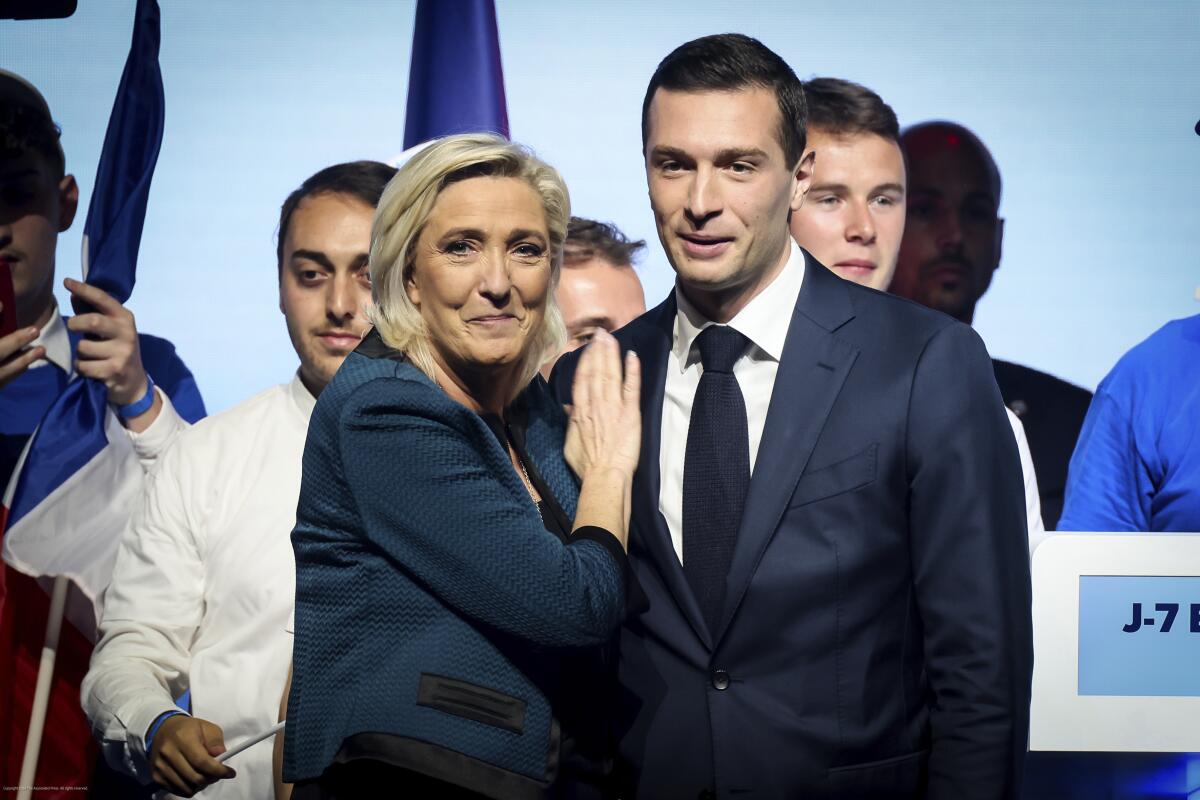
The leader of France's far-right National Rally, Marine Le Pen, left, and candidate Jordan Bardella during a political meeting this month in Paris. Le Pen's party is expected to be a big winner in the parliamentary vote.
(Tomás Padilla / Associated Press)
Among both young and old voters, nationalist-populist politicians benefit from the perception that traditional parties reflect the views and interests of an entrenched elite, said Rooduijn, the Dutch analyst.
“The message of the European radical right is very similar to Donald Trump's message,” he said. “And the rhetoric is very, very similar: nativist, exclusionary, authoritarian.”
Although far-right parties are generally seen as a threat to European liberal democracy (exemplified by the dramatic democratic backslide in Hungary, led by Orban), populist messages often help foster a “veneer of democratic legitimacy,” Rooduijn said. .
“They can claim that they are true democrats, because they represent ordinary citizens against an elite that does not listen,” he said.


